1. The drug can cause constipation
Constipation is a very uncomfortable condition that can have many causes, including medication, which is a cause that we often overlook. Some medications can cause and worsen constipation, especially when used in high doses or when starting to use the medication.
Below are medications that have the risk of causing constipation when used:
- Antihypertensive drugs : The most common antihypertensive drugs are calcium channel blockers (nifedipine, verapamil, etc.). The main function of calcium channel blockers is to relax the smooth muscles of blood vessels, thereby reducing the smooth muscle tone of the intestinal wall, slowing intestinal motility, which can cause constipation. Diuretics such as furosemide and hydrochlorothiazide can cause dehydration in the body, thereby increasing the absorption of fluid from the colon, causing constipation, especially in the elderly.
- Stomach antacids : Stomach antacids are used to neutralize acid. The ingredients of common antacids mainly contain magnesium, calcium or aluminum compounds... if used for a long time, they will easily combine with food residue in the intestine and become aluminum salts, calcium salts that are difficult to dissolve and cannot be absorbed, causing the stool to dry out, making it more difficult to defecate.
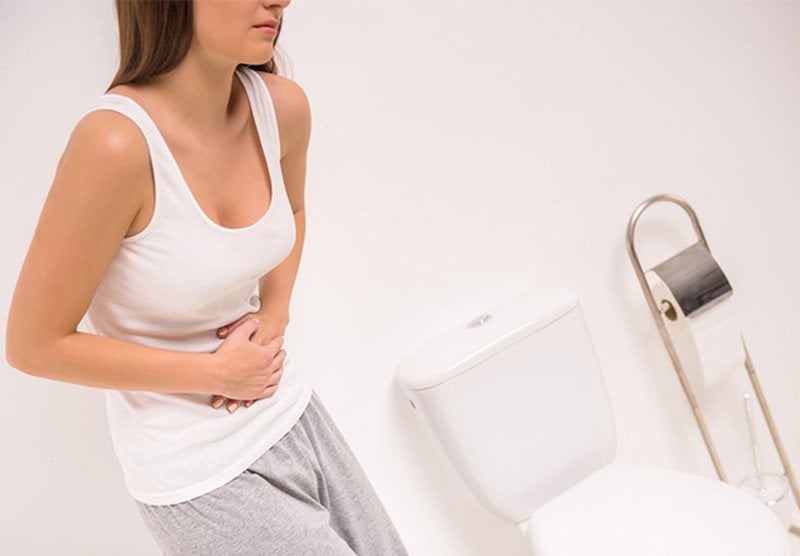
Decreased bowel movements, dry, hard stools, and difficulty passing stools are symptoms of constipation.
- Opioid analgesics : Opioids are painkillers commonly used to treat cancer pain. Common opioid analgesics are morphine, tramadol, fentanyl, codeine, oxycodone... Opioid-induced bowel dysfunction is a common complication of long-term opioid treatment.
Opioid-induced constipation is the most common symptom, affecting 60% to 90% of patients using opioids for cancer pain. Opioids can inhibit gastrointestinal transit and motility, reduce secretion, and increase fluid absorption, leading to intestinal dysfunction, including constipation, gastroesophageal reflux disease, nausea, vomiting, abdominal distention, and abdominal pain.
- Antihistamines : In addition to treating allergies, antihistamines are also commonly used pharmaceutical ingredients to treat colds. Among them, first-generation antihistamines reduce symptoms by interfering with histamine receptors and also acting on parasympathetic receptors, slowing intestinal motility, so it is easy to encounter adverse reactions such as difficulty defecating.
- Antidepressants : Antidepressants, including tricyclic antidepressants (TCAs) such as amitriptyline, selective serotonin reuptake inhibitors (SSRIs) such as paroxetine, norepinephrine, and serotonin-norepinephrine reuptake inhibitors (SNRIs) such as duloxetine, and many other antidepressants, have different mechanisms of adverse reactions to constipation. For example, TCAs and SNRIs can cause insufficient intestinal secretion and slow smooth muscle motility, causing stool to remain in the intestine longer, leading to constipation.
- Stimulant laxatives : Stimulant laxatives such as phenolphthalein are used to treat constipation because they stimulate the walls of the large intestine. However, if abused, not only can they easily become dependent over time, but they can also weaken the tone of the colon, making defecation even more difficult. Therefore, you should consult your doctor or pharmacist before using drugs containing these ingredients.
- Non-steroidal anti-inflammatory drugs (NSAIDs) : The pharmacological action of NSAIDs is based on the inhibition of the enzyme cyclooxygenase (COX), thereby leading to the down-regulation of PGE production both centrally and peripherally. PGE plays a physiological role in reducing gastric acid secretion, increasing gastric mucus secretion and increasing smooth muscle contraction of the gastrointestinal tract. Inhibition of PGE can lead to adverse physiological effects and lead to constipation.
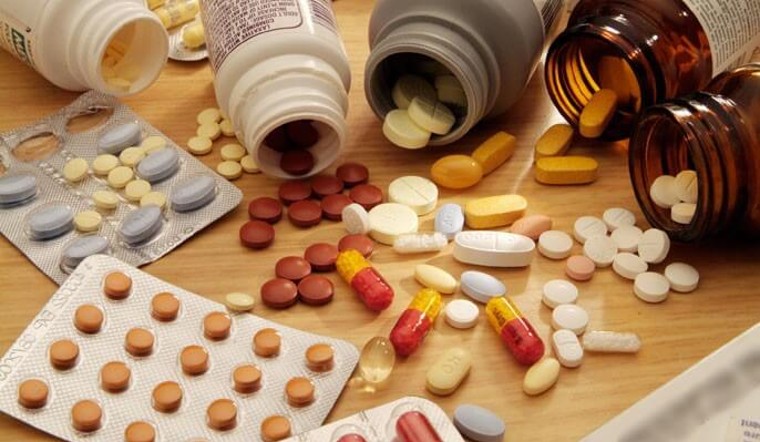
Some medications have side effects that can cause constipation.
2. What to do to overcome constipation caused by medication?
To determine whether constipation is caused by medication or not, the doctor will base on the following conditions:
- Have a clear history of medication use such as taking drugs that can cause constipation (mentioned above).
- There are clinical manifestations, for example, decreased bowel frequency or significantly delayed bowel habits after taking the drug, after excluding the cause of constipation due to intestinal damage, systemic disease or neurological disease.
- Stopping the medication and treating the symptoms may alleviate the problem, but constipation will return when the medication is restarted.
For medication-induced constipation, the following treatments may be used:
- Make sure to drink enough water, eat enough fiber and increase physical activity and exercise.
- If constipation is severe, see your doctor as soon as possible and adjust your medication plan to minimize side effects. Do not stop taking your medication on your own, and do not overuse certain laxatives to improve constipation symptoms.
To prevent constipation, it is necessary to form good living and bowel habits, maintain adequate water intake, 1500 - 2500 ml per day, increase dietary fiber such as fruits, vegetables, oats, corn, soybeans, etc., can improve the characteristics of stool and bowel habits. Appropriate exercise, especially abdominal exercise, is beneficial to the recovery of gastrointestinal function.
Finally, when using laxatives, it is necessary to adjust the dosage appropriately to achieve a laxative effect. In general, it should only be used for a few days and should not be abused.
Dr. Le Thanh Hoa
Source: https://giadinh.suckhoedoisong.vn/nhung-loai-thuoc-gay-tao-bon-can-biet-172240521133050045.htm





























![[Photo] National Assembly Chairman attends the seminar "Building and operating an international financial center and recommendations for Vietnam"](https://vphoto.vietnam.vn/thumb/1200x675/vietnam/resource/IMAGE/2025/7/28/76393436936e457db31ec84433289f72)





































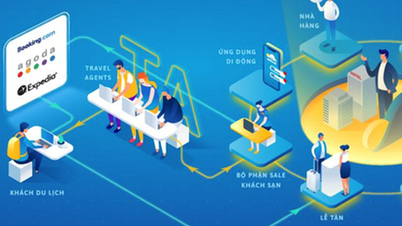





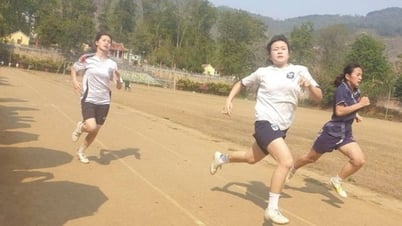
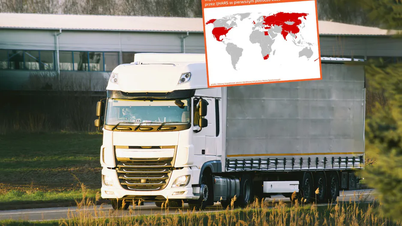

























Comment (0)